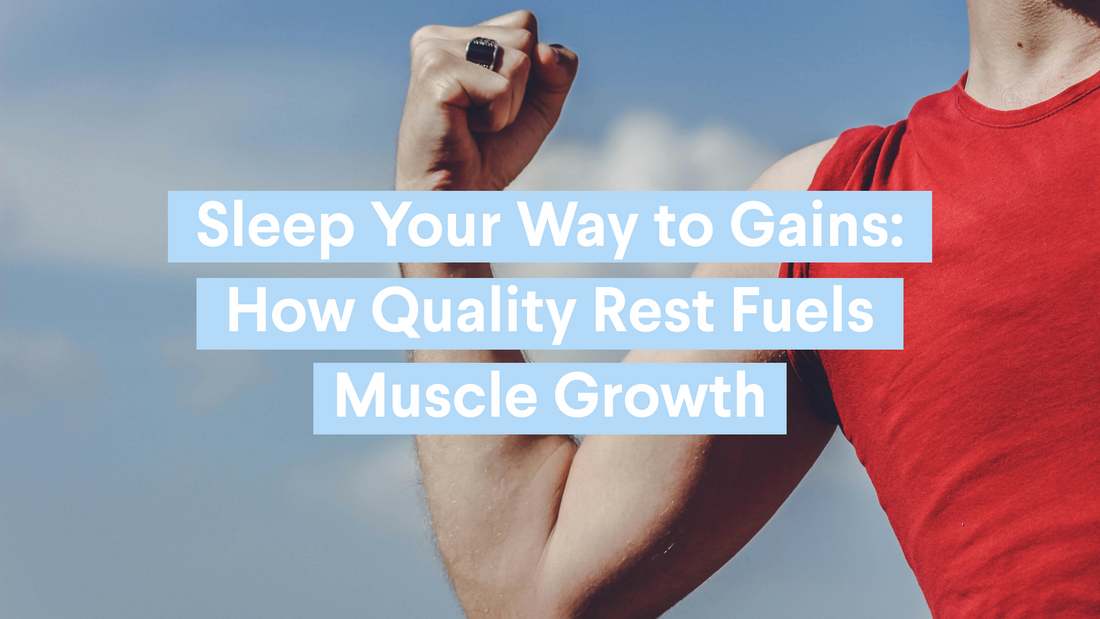When it comes to building muscle, people often focus on training hard and eating right, but there’s another crucial factor that’s often overlooked: sleep. While exercise and nutrition are undeniably essential, quality rest can have a major impact on muscle gains. Here’s a look at how sleep directly supports muscle growth and why prioritizing good rest can elevate your fitness journey.
The Muscle-Building Power of Deep Sleep
Sleep is more than just a chance to rest after a long day. It’s an essential recovery period, especially for anyone engaging in regular exercise or strength training. During the deeper stages of sleep, especially slow-wave or “deep” sleep, the body releases growth hormone, which is vital for muscle repair and regeneration. This hormone helps rebuild and strengthen muscle fibers that were strained during workouts, making deep sleep a cornerstone of recovery.
Growth hormone is released in cycles throughout the night, working on repair and growth during rest. Shortening your sleep can mean missing out on these recovery periods, limiting your progress.
Sleep and Muscle-Building Hormones
Alongside growth hormone, sleep also plays a crucial role in maintaining other hormones that contribute to muscle growth, like testosterone. Studies show that sleep deprivation can lower testosterone levels across all genders, which can impact energy, mood, and muscle-building capacity.
In one study, participants who slept only five hours per night experienced a significant reduction in testosterone levels compared to those who enjoyed a full seven to eight hours. Prioritizing adequate sleep supports a balanced hormonal environment, helping you maintain the motivation and energy needed for consistent workouts and recovery.
Managing Cortisol: The Role of Sleep in Recovery
Sleep isn’t just about building; it’s also about managing the body’s stress responses. Cortisol, the primary stress hormone, can break down muscle tissue when elevated. By regulating cortisol through sleep, you help protect your hard work and support recovery.
Sleep also plays a role in managing insulin sensitivity, which keeps your metabolism balanced. Lack of sleep can throw this balance off, leading to increased cortisol levels and a risk of muscle breakdown, while making it harder to build and recover.
How Much Sleep Do You Need for Muscle Growth?
The ideal amount of sleep varies from person to person, but generally, 7 to 9 hours of restful sleep are recommended for supporting muscle growth and overall recovery. Some people might feel okay with 6 hours, but studies show that 7-9 hours provide the most benefits for athletes and fitness enthusiasts alike.
Here are a few ways to enhance your sleep quality:
- Stick to a Schedule: Going to bed and waking up at the same time each day helps regulate your internal clock, making it easier to fall asleep and enjoy deep rest.
- Limit Stimulants: Caffeine and alcohol can disrupt sleep quality, especially when consumed in the afternoon or evening. Avoid caffeine at least six hours before bed for better rest.
- Create a Relaxing Bedtime Routine: Reading, meditating, or using a white noise machine like SNOOZ can help signal to your brain that it’s time to wind down.
The Bottom Line
If muscle growth is your goal, don’t underestimate the power of quality sleep. By ensuring you get those 7-9 hours of uninterrupted rest each night, you’re not just recharging—you’re supporting your body’s natural repair and growth processes. So, keep up the hard work at the gym, fuel up with nourishing foods, and let sleep work its magic in helping you reach your fitness potential.









